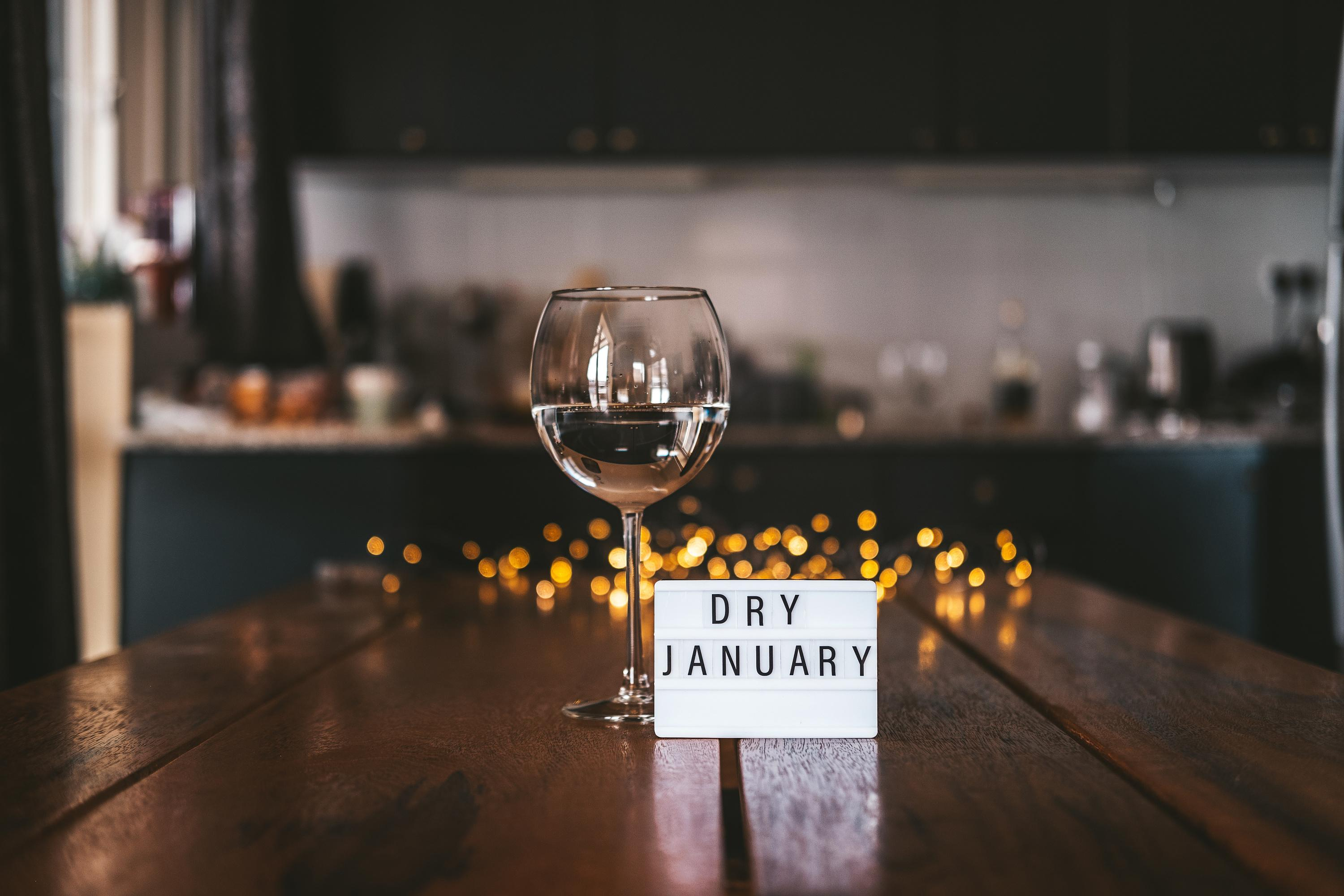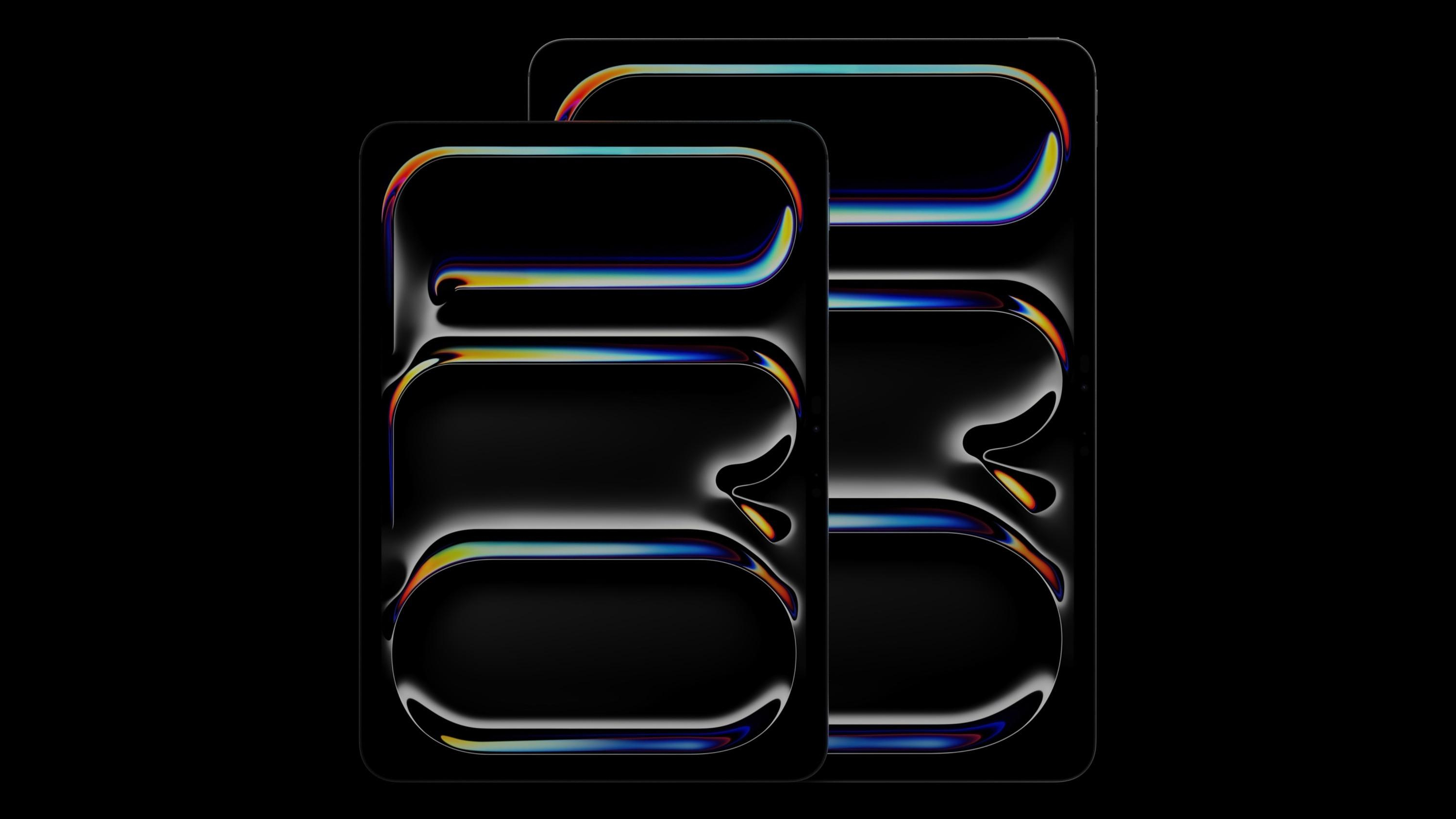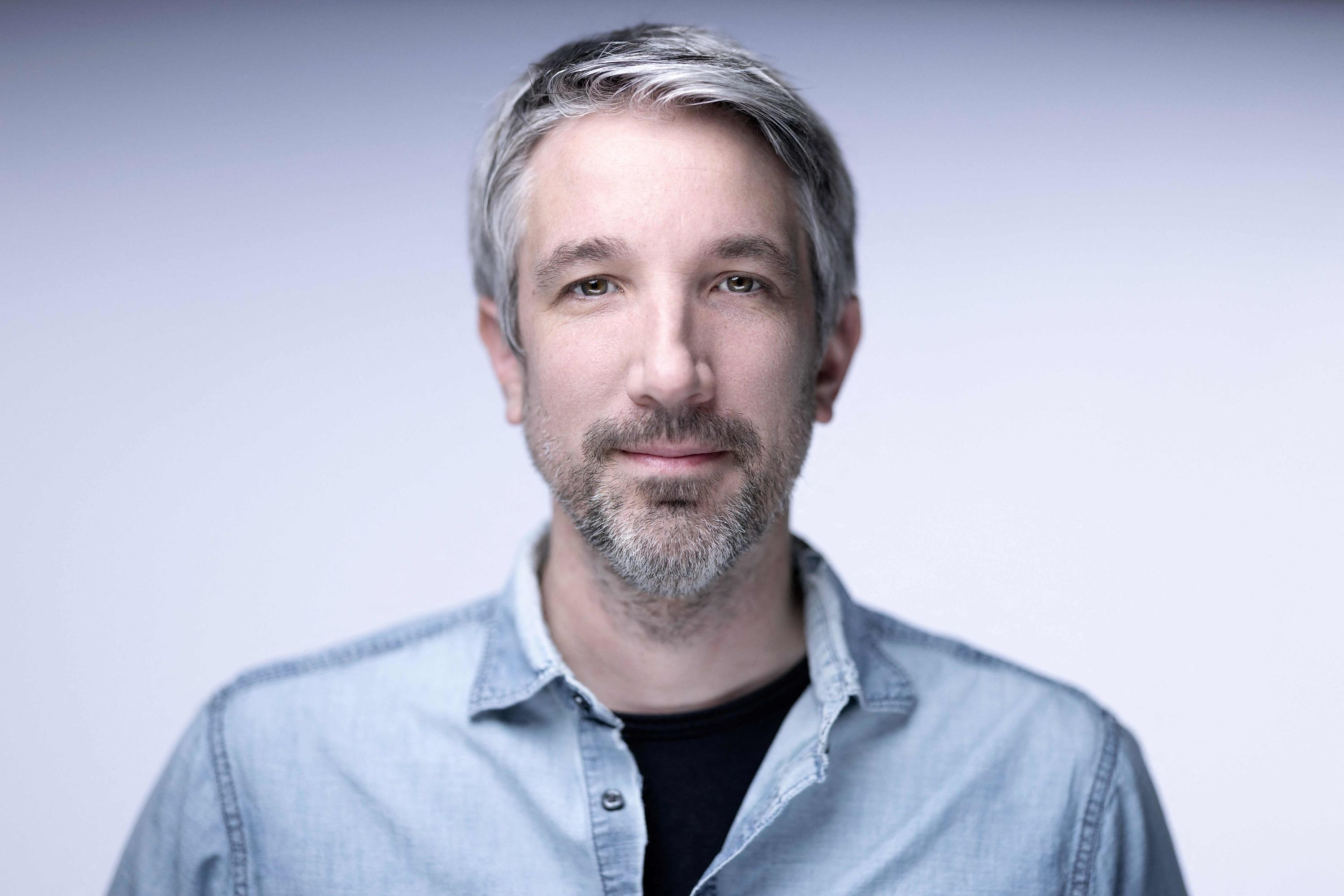Accomplishment, relief, pride. These are the feelings often felt each year by thousands of people who undertake “Dry January”, this challenge which consists of spending the month of January without alcohol to start the new year. The concept saw the light of day under the leadership of the British organization Alcohol Change UK, which launched the first Dry January in 2013. Since then, the operation has gained popularity. In France, thousands of people spend the month of January in clean water. But for what short or long term benefits? And for what collective result in terms of public health?
From simple curiosity to the first step towards weaning, the trigger is very personal. Virgil, a great sportsman, takes up the challenge every year. “I regularly drink alcohol with my friends. But as I also do a lot of sport, I try to pay attention to my consumption because it can affect my own performance or simply my motivation to go to the gym the day after a drunken evening. » For Théo, a doctoral student, this challenge is an opportunity to think about his personal consumption. “It is entirely possible to have a good time without alcohol and Dry January allows you to prove it,” he explains. And knowing that alcohol is bad for your health, it’s doubly beneficial.”
In France, alcohol remains the second cause of preventable death after tobacco. Beyond immediate risks such as accidents linked to drunkenness, chronic drinking promotes weight gain, the risk of cirrhosis, hypertension, sleep disorders, anxiety, depression and even the risk of cancer (particularly liver and mouth). “During the end-of-year celebrations, we also tend to eat more fat, consume more alcohol while being less active,” adds Bernard Basset, doctor and president of Addictions France. All these factors increase the risk of overloading your liver. In this context, Dry January can be beneficial for everyone to detoxify their body after the holidays.
» READ ALSO - Alcohol: more than one in five French people consume more than recommendations
The effects are visible from the first days of abstinence. “In general, people feel less tense and more energetic,” emphasizes Dr. Basset. But the most spectacular effect remains the improvement in the quality of sleep.” This is the case for Theo. “After a long break without alcohol, I wake up less during the night and I feel like I'm sleeping more soundly. " He is not the only one. In a 2019 University of Sussex study of nearly 3,000 Dry January participants, 71% said they slept better. But the benefit goes well beyond: 58% were pleased with weight loss, 57% with being more focused on a daily basis and 54% with more beautiful skin. It also proved to be an ally for the wallet, with 90% of participants in this study confirming that they had saved money.
In the longer term, however, the effects on health are more difficult to measure. “Dry January probably has little influence on disease risk or mortality because it involves other factors such as lifestyle and environment. However, it is certain that this operation helps raise awareness, which is absolutely not negligible,” insists Bernard Basset. Specialists note that the resumption of alcohol is more gradual at the end of the challenge, which suggests that its effect can be lasting. For example, according to surveys in the United Kingdom, some participants report having lower alcohol consumption within six months.
According to the specialist, this change in behavior could be explained by awareness of the influence of the social context: “alcohol consumption is still too often a simple reflex”. Virgil does not hide from this “worldly” effect of alcohol: “it is certain that my consumption is strongly associated with moments of conviviality, several times a week, and that the month without alcohol is also a means to realize it. And even if I take on the challenge, I can see that there is always a moment when I break down during outings with friends,” he admits. Last year, he lasted “almost” 20 days before resuming his usual consumption. “This year, I’m going to surpass myself.”
» READ ALSO - “Come on, just one drink!” : how non-drinkers resist the social pressure of alcohol
If Dry January is a challenge taken up at an individual level, it also has a significant impact through collective commitment. “The event acts as a powerful collective awareness tool for alcohol-related problems,” underlines Bernard Basset. Support groups, guides and applications for smartphones... The operation encouraged the creation of multiple tools to support participants and provide reflection on consumption habits. Alongside the major national campaign (led since 2020 in France), several large cities such as Lyon and Paris are relying on the initiative to create their own websites. This is also the case for the city of Brest which highlights the challenges of the challenge in its “Brest alcohol plan”. By encouraging a large number of people to participate, the operation stimulates dialogue between the public, associative and institutional stakeholders and communities around the risks of excessive alcohol consumption.

 Finding yourself face to face with a man or a bear? The debate that shakes up social networks
Finding yourself face to face with a man or a bear? The debate that shakes up social networks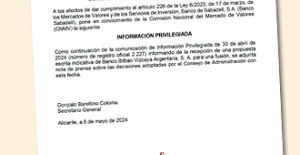 Sabadell rejects the merger with BBVA and will fight to remain alone
Sabadell rejects the merger with BBVA and will fight to remain alone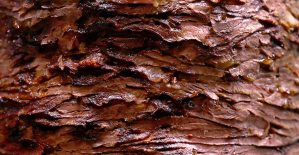 In Germany, the far left wants to cap the price of “doner kebabs”
In Germany, the far left wants to cap the price of “doner kebabs” Israel-Hamas war: Gaza between hope of truce and fear of Israeli offensive in the South
Israel-Hamas war: Gaza between hope of truce and fear of Israeli offensive in the South The presence of blood in the urine, a warning sign of bladder cancer
The presence of blood in the urine, a warning sign of bladder cancer A baby whose mother smoked during pregnancy will age more quickly
A baby whose mother smoked during pregnancy will age more quickly The euro zone economy grows in April at its best pace in almost a year but inflationary pressure increases
The euro zone economy grows in April at its best pace in almost a year but inflationary pressure increases Children born thanks to PMA do not have more cancers than others
Children born thanks to PMA do not have more cancers than others “The prices are astronomical”: to enjoy the Olympics with family, Sabrina spent... 8,000 euros
“The prices are astronomical”: to enjoy the Olympics with family, Sabrina spent... 8,000 euros “House of the Dragon”, “Succession”… Max, the new streaming platform from HBO and Discovery, launched in France on June 11
“House of the Dragon”, “Succession”… Max, the new streaming platform from HBO and Discovery, launched in France on June 11 The A13 motorway will finally reopen this Friday, in one direction only
The A13 motorway will finally reopen this Friday, in one direction only TNT commission of inquiry: tensions between LFI deputies and Macronists before the vote on the report
TNT commission of inquiry: tensions between LFI deputies and Macronists before the vote on the report The Coubertin Spirit, Eternal Memory, Planet of the Apes... Films to watch this week
The Coubertin Spirit, Eternal Memory, Planet of the Apes... Films to watch this week Rappers Drake and Kendrick Lamar vie for the spotlight
Rappers Drake and Kendrick Lamar vie for the spotlight In Istanbul, the ancient Byzantine church of Saint-Sauveur-in-Chora reopens for Muslim worship
In Istanbul, the ancient Byzantine church of Saint-Sauveur-in-Chora reopens for Muslim worship David Castello-Lopes: a fresh wind blows on the one-man show with his show Authentique
David Castello-Lopes: a fresh wind blows on the one-man show with his show Authentique Omoda 7, another Chinese car that could be manufactured in Spain
Omoda 7, another Chinese car that could be manufactured in Spain BYD chooses CA Auto Bank as financial partner in Spain
BYD chooses CA Auto Bank as financial partner in Spain Tesla and Baidu sign key agreement to boost development of autonomous driving
Tesla and Baidu sign key agreement to boost development of autonomous driving Skoda Kodiaq 2024: a 'beast' plug-in hybrid SUV
Skoda Kodiaq 2024: a 'beast' plug-in hybrid SUV The home mortgage firm rises 3.8% in February and the average interest moderates to 3.33%
The home mortgage firm rises 3.8% in February and the average interest moderates to 3.33% This is how housing prices have changed in Spain in the last decade
This is how housing prices have changed in Spain in the last decade The home mortgage firm drops 10% in January and interest soars to 3.46%
The home mortgage firm drops 10% in January and interest soars to 3.46% The jewel of the Rocío de Nagüeles urbanization: a dream villa in Marbella
The jewel of the Rocío de Nagüeles urbanization: a dream villa in Marbella Institutions: senators want to restore the accumulation of mandates and put an end to the automatic presence of ex-presidents on the Constitutional Council
Institutions: senators want to restore the accumulation of mandates and put an end to the automatic presence of ex-presidents on the Constitutional Council Europeans: David Lisnard expresses his “essential and vital” support for François-Xavier Bellamy
Europeans: David Lisnard expresses his “essential and vital” support for François-Xavier Bellamy Facing Jordan Bardella, the popularity match turns to Gabriel Attal’s advantage
Facing Jordan Bardella, the popularity match turns to Gabriel Attal’s advantage Europeans: a senior official on the National Rally list
Europeans: a senior official on the National Rally list These French cities that will boycott the World Cup in Qatar
These French cities that will boycott the World Cup in Qatar Ligue 1: at what time and on which channel to watch the Multiplex on Sunday?
Ligue 1: at what time and on which channel to watch the Multiplex on Sunday? PSG-Dortmund: Hummels’ (big) tackle to “teams who wanted to play against” BVB
PSG-Dortmund: Hummels’ (big) tackle to “teams who wanted to play against” BVB Top 14: Pierre Bochaton extends with UBB until 2027
Top 14: Pierre Bochaton extends with UBB until 2027 Tennis: Monfils beaten, Atmane surprises and advances to the 2nd round in Rome
Tennis: Monfils beaten, Atmane surprises and advances to the 2nd round in Rome